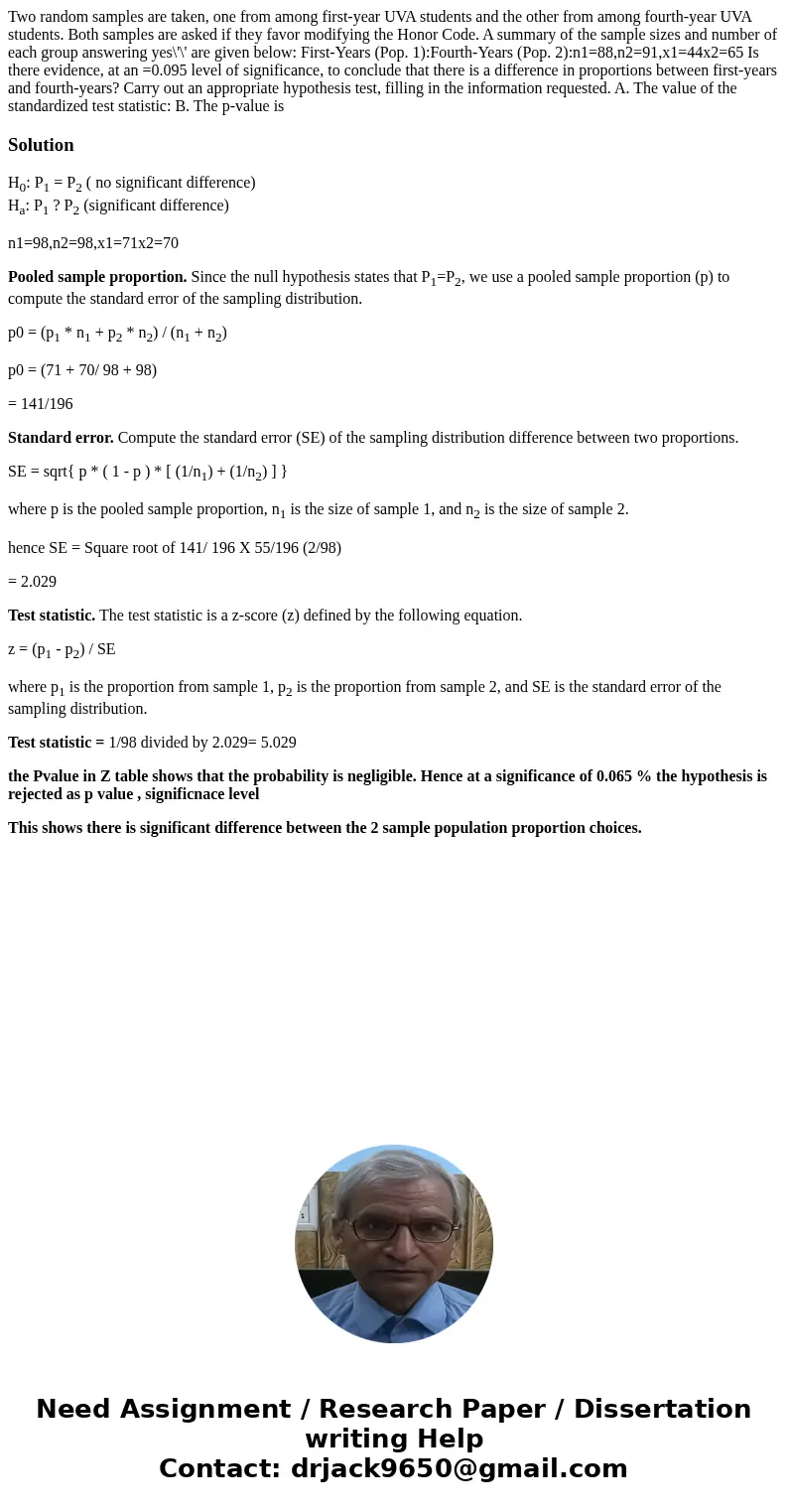Two random samples are taken one from among firstyear UVA st
Two random samples are taken, one from among first-year UVA students and the other from among fourth-year UVA students. Both samples are asked if they favor modifying the Honor Code. A summary of the sample sizes and number of each group answering yes\'\' are given below: First-Years (Pop. 1):Fourth-Years (Pop. 2):n1=88,n2=91,x1=44x2=65 Is there evidence, at an =0.095 level of significance, to conclude that there is a difference in proportions between first-years and fourth-years? Carry out an appropriate hypothesis test, filling in the information requested. A. The value of the standardized test statistic: B. The p-value is
Solution
H0: P1 = P2 ( no significant difference)
Ha: P1 ? P2 (significant difference)
n1=98,n2=98,x1=71x2=70
Pooled sample proportion. Since the null hypothesis states that P1=P2, we use a pooled sample proportion (p) to compute the standard error of the sampling distribution.
p0 = (p1 * n1 + p2 * n2) / (n1 + n2)
p0 = (71 + 70/ 98 + 98)
= 141/196
Standard error. Compute the standard error (SE) of the sampling distribution difference between two proportions.
SE = sqrt{ p * ( 1 - p ) * [ (1/n1) + (1/n2) ] }
where p is the pooled sample proportion, n1 is the size of sample 1, and n2 is the size of sample 2.
hence SE = Square root of 141/ 196 X 55/196 (2/98)
= 2.029
Test statistic. The test statistic is a z-score (z) defined by the following equation.
z = (p1 - p2) / SE
where p1 is the proportion from sample 1, p2 is the proportion from sample 2, and SE is the standard error of the sampling distribution.
Test statistic = 1/98 divided by 2.029= 5.029
the Pvalue in Z table shows that the probability is negligible. Hence at a significance of 0.065 % the hypothesis is rejected as p value , significnace level
This shows there is significant difference between the 2 sample population proportion choices.

 Homework Sourse
Homework Sourse